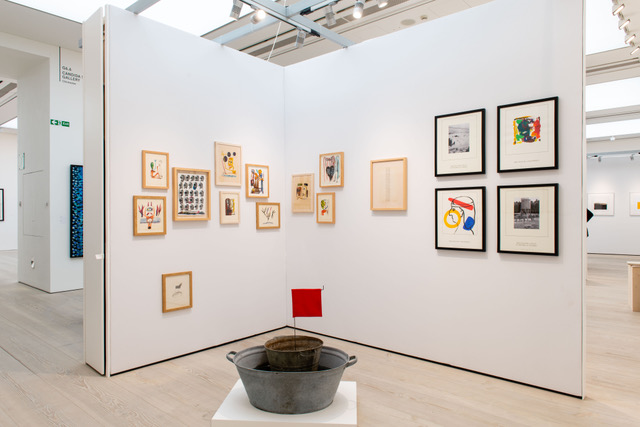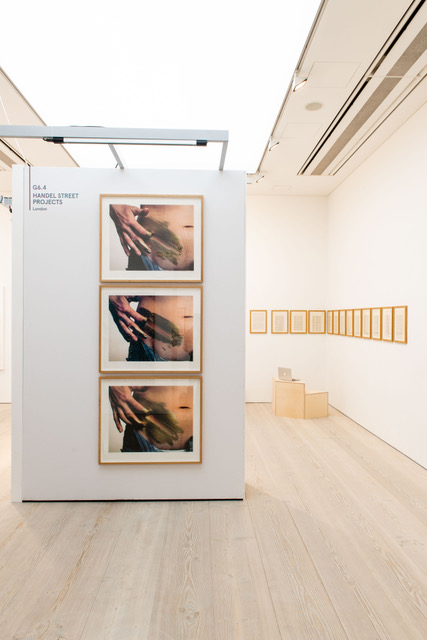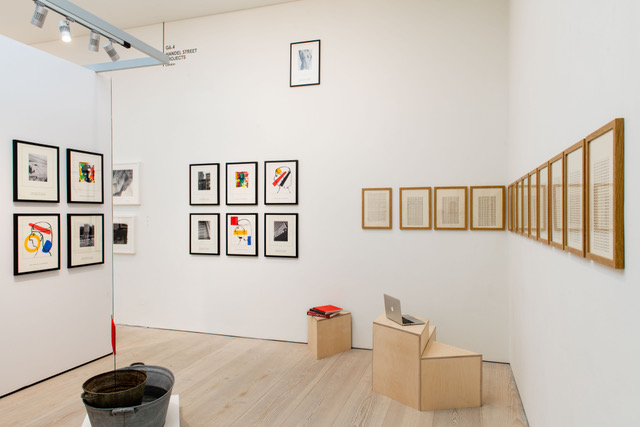Handel Street Projects
14 Florence Street, London N1
Draw Art Fair G6.4, Saatchi Gallery, London
17 – 19 May 2019
Handel Street Projects is pleased to announce our participation at Draw Art Fair.
For our presentation we have chosen a selection of works by two prominent exponents of Yugoslav avant-garde: Braco Dimitrijević (b.1948) and Raša Todosijević (b.1945).
This Could be a Masterpiece is a series of Braco Dimitrijević’s works from the early 1970’, drawings and watercolours, executed in a wide range of styles from figurative to abstract, in which the artist questions both the criteria of judging art and the values that can be attributed to it. Dimitrijević’s entire oeuvre is engaged in dialogue with history, how passage of time, changes of taste and transformations of general social environment affect our valuing of art. Arbitrariness of historical selection and aesthetic judgements are often linked to the fact that sometimes consensus gives work of art its status of a masterpiece. Similar discourse Dimitrijević develops in the works entitled This Could be a Place of Historical Interest, series of unique photographs of anonymous, randomly chosen places taken in various cities are accompanied by this conditional sentence, which can mean that any place could become in the future the stage of an important event, or that some events have already taken place there but its importance is still to be recognised. The works from this series were first shown in Dimitrijević’s solo exhibition at Abteriberg Museum Monchengladbach in 1975 and later in his numerous retrospectives of which the most recent was at the Museum of Modern Art (GAM) Turin in 2016.



Nulla dies sine linea is a series of 12 drawings by Raša Todosijević made in 1976. They belong to a body of work, which also had a performative aspect. The artist would draw lines on the walls in a variety of places: galleries, museums, private homes, and depending on the ‘importance’ of the space he would draw one or 200,000 lines. Apart from being a cynical act, about ‘hard labour’ that artists are expected to put in to the creation of their art, it is also about the valuation of the work of art per se in accordance to the manual work, which was put into it. Todosijević performed/executed these works, among many other places, on the occasion of Paris Biennial in 1977 where he drew 200,000 lines or in Art/Tapes/22, Florence in 1976 where he drew with a pencil 10,000 lines on the wall. We will also present a series of watercolours that Todosijević started making in the 80’, which subvert this technique usually associated with traditional art. Referencing a variety of modernist languages, like expressionists, Beckmann and Nolde, Klee, Picasso, Surrealists, Symbolists etc, these watercolours are a critique of pastiche and mediocrity in art, directed to a whole lot of ‘mannerists’ who have a habit of imitating success of their idols in order to become successful, as well as towards the audience that is fascinated mostly by that direct link to the idol. You will also be able to hear Todosijević‘s 1978 textual work Edinburgh Statement: Who Makes a Profit on Art and who Gains from it Honestly?, which we will play at booth G6.4 every 2 hours.
